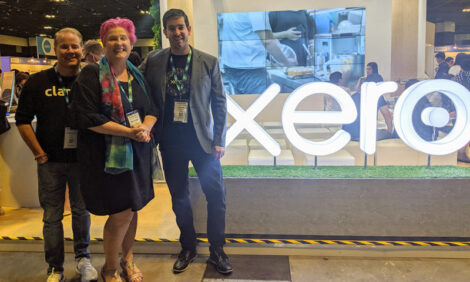
The impact and opportunity of innovative business models, embedded learning, purposeful work and rich data

Written by guest author – Heather Smith FCCA, FCA, FICB. Heather is also an author, writer, speaker and small-business consultant, as well as a Xero platinum practice partner.
The Chartered Accountants Australia and New Zealand and the Association of Chartered Certified Accountants combined forces to release a Professional Insights report – Careers in small and medium-sized accountancy practices. One aspect of the report that piqued my interest was 20 trends changing the world of work and transforming the nature of careers in accountancy, which you can read by downloading the full report here. I spoke with Kevin Fitzgerald, Xero’s Regional Director – Asia, on a recent episode of the Cloud Stories podcast about the impact and opportunity of these trends for a practice. Here are some of the highlights of that conversation.
The meaning of work
The purpose and meaning of work is becoming more important for us all. It can be a discovery process through your career and life. Figuring out where your passion lies, and what is your ‘Why’. Kevin shares that he developed a real passion for helping business owners, ”I started to learn who the business owners were and understood that the business has a family unit behind it.”
Some accountants are working with their clients to help them find their own meaning. It’s not about growing profitable businesses. Life goals and finding balance are important. Accountants can help their clients build a purposeful and sustainable business.
Business models innovate
Professional accountants discover new opportunities as business models change.
My business model reflects this trend. I’m a micro operator, focused on management accounting. As I don’t do the compliance side of it, I’m not tied into a specific area. My practice fits in my handbag, I can work from anywhere, and my clients and my support can be anywhere in the world.
Since 2017 Kevin Fitzgerald has helped Asian SMEs maximise profits, digitise their business, and focus on understanding the financial health of the business by using cloud tools.
“It looks as if COVID-19 is forcing business model innovation. Innovation comes from creative sources but also from challenging times where you have to come up with a solution.”
Don’t try to rebuild what was in the past. Work out what actually works for you and what’s going to suit you. What business do we do to capitalise on an opportunity? And then what does it mean for the people? By using the right tools and having a good, innovative business model, you’re able to do a great range of things.
The rise of data
Data possibilities become ever central to the roles of accountants. You can only get to the point of having rich data if you have the right tools to surface it.
Under its Xero Small Business Insights program, Xero releases monthly metrics assessing the impact of COVID-19 on the small business economy in Australia, New Zealand and the United Kingdom. The insights draw on data from hundreds of thousands of Xero customers, which is anonymised and aggregated for privacy.
Kevin shares “Through the pandemic we have been tracking the impact on small businesses on revenue, jobs and payment times.We use these insights to brief government as well as releasing them publicly. Our data shows that once the health risk of the virus is addressed, economic recovery can follow. We have seen this in both New Zealand and Australia as the virus has been brought under control and the lockdowns have eased.”
“It is also clear that the government stimulus packages aimed at supporting small businesses have been widely adopted and have supported job retention. I think there’s an opportunity for accountants to take a look at the monthly XSBI Update reports and say, “Okay, what does this mean? What story is this telling us about our businesses? How do I help my client?” he continues.
This was the theme of a recent webinar hosted by the CA ANZ ‘Unpacking the Xero Small Business Insights Program’ as part of their COVID-19 Sharing Knowledge Series. Sue Pak, Head of Accounting at Xero, and Matthew Prouse, Head of Industry at Xero, joined me to explore how the report insights can be used by accountants to help small businesses. You can watch it here.
Learning culture at work
Learning culture at work evolves in the face of skills transformation.
Kevin recently spoke with Jerina Loh, the RPA Manager at KLP LLP.
“Jerina blew me away with what she is doing in her job. Her job is Robotic Process Automation and finding opportunities initially in their own business workflow. What else can they do in the business to figure out what they can leverage on? What APIs are available on accounting software platforms? What APIs are available on the bank platforms? Using tools like Zapier to digitise their own workflow” shares Kevin.
“Part of the job at KLP LLP is then sharing the opportunities with their clients. And that for me is a great example of learning culture. Very supportive leadership, giving extra time to work. A great example of somebody living that learning culture.” he adds.
Understanding industry and workforce trends can help businesses adopt strategies that benefit themselves and their clients.
The full report including all 20 trends can be downloaded here. You can also listen to the discussion on the Cloud Stories podcast.
About the author
Heather is a Xero platinum practice partner. Heather creates and curates content focused on Accounting technology, through the ‘Cloud Stories‘ podcast, writing multiple Cloud Accounting books, including Xero for Dummies, and publishing the Accounting Apps newsletter.
The post The impact and opportunity of innovative business models, embedded learning, purposeful work and rich data appeared first on Xero Blog.
Source: Xero Blog






